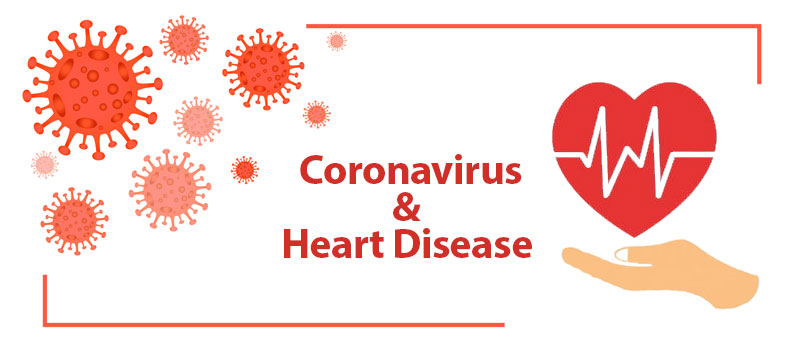As new research continues to emerge regarding the novel COVID-19 pandemic, the link between the novel coronavirus and heart disease becomes more clear.
Although COVID-19 is a respiratory disease which is considered to mainly affect the lungs, empirical evidence has proven that a large majority of coronavirus patients suffer some degree of heart damage.
Moreover, elderly people, those with compromised immune systems, chronic illness, and cardiac patients are considered to be at-risk individuals for the coronavirus. This makes one thing clear: that it is more important than ever to take care of cardiovascular health and take preventive measures against heart disease.
How Can the New Coronavirus Cause Heart Disease?
It is a common misconception that since COVID-19 is a respiratory illness, it cannot harm the cardiovascular system. According to an expert cardiologist in Dubai, there are different ways that this novel coronavirus poses a risk to heart health:
1. Lack of Oxygen
The new coronavirus causes inflammation and fluid to fill up in the lungs. The lack of oxygen can cause cell death and tissue damage in the heart and other organs. Moreover, when there is less oxygen to the bloodstream, the heart compensates by working harder to pump blood throughout the body. When it becomes overworked, it can lead to heart failure.
2. Myocarditis
Research has shown that COVID-19 can affect the heart directly by causing inflammation, or Myocarditis. This can lead to serious conditions such as arrhythmias and heart failure. Furthermore, the virus may cause the heart to become inflamed indirectly by the body’s own immune system response.
3. Cardiomyopathy
Viral infections such as the COVID-19 can cause a disease known as cardiomyopathy, which affects the heart’s ability to pump blood throughout the body effectively. Simply put, the stress caused by the virus can cause heart muscles to become stunned and rapidly weaken.
4. Cytokine Storm
When exposed to the new coronavirus, the immune system will try to fight off the virus. It will release a flood of proteins called cytokines that help fight the infection. However, in some cases, the immune system’s attack is so severe that it begins to attack healthy tissues and damage organs such as the heart. This phenomenon is known as a cytokines storm, and has been shown to be a serious threat to COVID-19 patients.
How to Minimize Risk of Heart Disease from COVID-19
Clearly, there is a large risk of cardiovascular disease resulting from the new coronavirus. In order to minimize the risk of such complications, individuals are recommended to follow the general prevention guidelines, such as:
- Wash your hands thoroughly with soap frequently and sanitize
- Avoid contact with people who are sick
- Wear a mask when you step outside
- Cough or sneeze into your elbow or tissue to prevent the transmission of infected droplets to others
- Stay home and self-isolate if you feel unwell or have been in contact with an infected person
- Avoid large gatherings and groups and maintain social distancing orders
In addition to these general guidelines, here are specific prevention measures for those with a history of cardiovascular disease, or those at high-risk:
- Continue to take your heart medication and follow medical advice
- Seek medical help immediately if you experience symptoms such as shortness of breath or fever
- Speak with a cardiologist in Dubai if you have had COVID-19
- Maintain heart healthy lifestyle at home with frequent exercise and healthy diet
Where to Find the Best Cardiologist in Dubai
If you are concerned about your heart health in the midst of the ongoing pandemic, then it is a good idea to consult with a Specialist Cardiologist in Dubai. Moreover, if you have suffered from the new coronavirus and have a history of heart complications, then you should visit a cardiologist in order to detect any further heart damage.
For the best cardiologist in Dubai, visit the German Heart Centre. Here you can book an appointment with Dr. Byron Kalliatakis, Dr. Laure Bruchou, or Professor Dr. Uwe Klima, who are highly qualified and experienced cardiologists. They are dedicated to facilitating patients during this pandemic according to all government health guidelines. Contact the German Heart Centre for more information.

